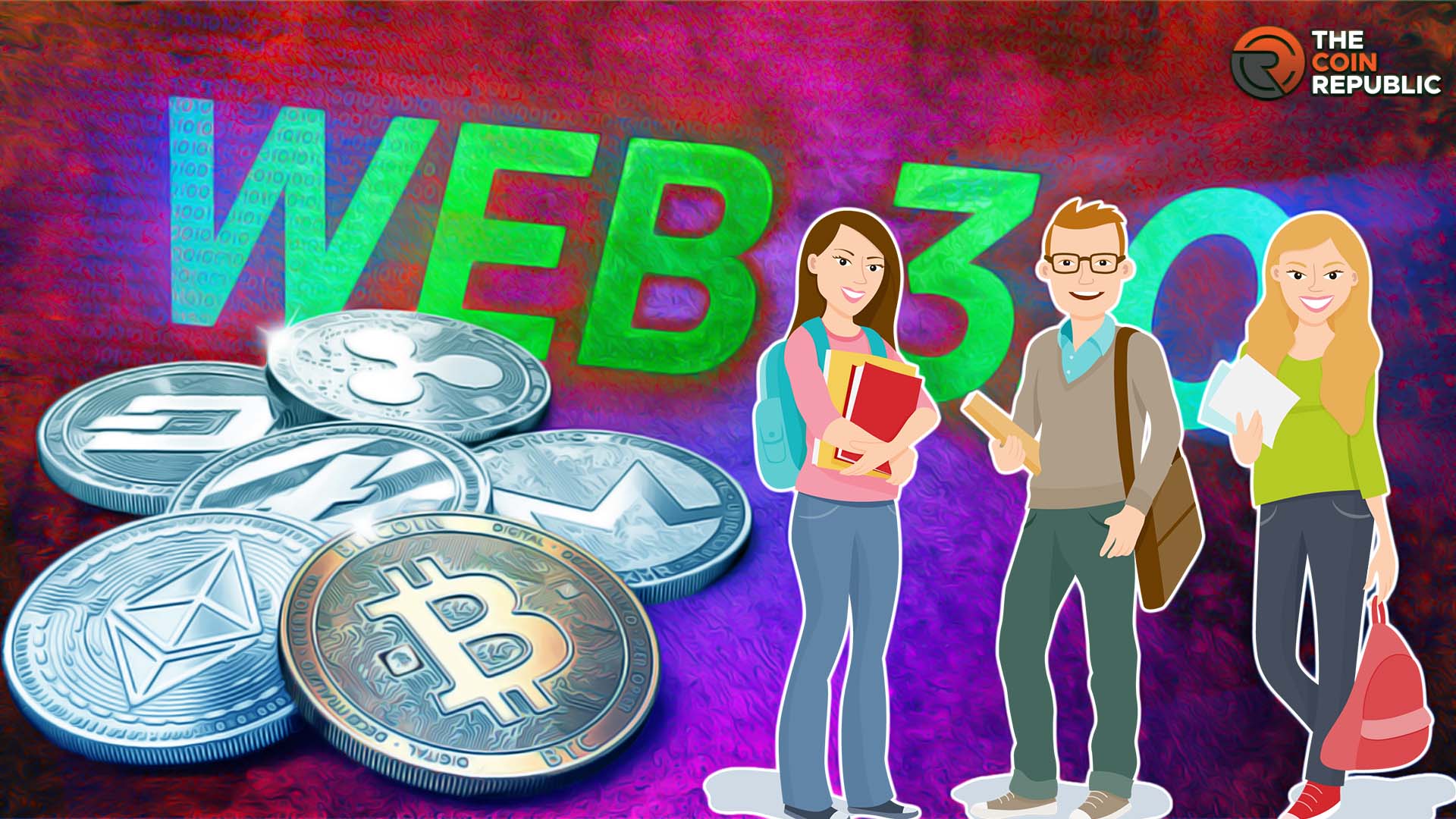NFTs are not dead – artists should not give up as real wages decline

NFTs are not dead. Innovations in how NFTs are used give artists new opportunities to thrive. Now is the time for artists to embrace NFTs, say Living Opera founders, Soula Parasidis and Christos A. Makridis.
If you only look at financial indicators, whether it’s the price of Ethereum or the S&P 500, you might think that crypto – or any asset class – is down. But that’s normal. The price of an asset is a function of its intrinsic value and expectations of future cash flow. So economic sentiment will generate cyclical volatility. The long-term question that matters is whether there is intrinsic value behind an asset – and the answer behind NFTs as technology is yes.
One of the clearest use cases for NFTs is in the arts. Our Living Opera research has found that real wages for performers in the US have been declining since 2009. What’s more, their wages are below the national average. This despite the fact that they have a higher level of education. If art continues as usual, it will implode – we need a solution.
NFTs offer them another path to success – and despite the downturn in the market, innovations in how NFTs are used are giving artists new opportunities to thrive.
NFTers are not dead, they are here to democratize
You might not be surprised to learn that artists don’t earn as much as data scientists. But the reality is much worse. There are many more musicians than jobs, and artists have only lost more of their bargaining power over time. This is even in genres of music where people might assume artists are fairly well compensated, like pop and hip-hop. Artists have had to give up much of their intellectual property to record companies. Many are forced to leave behind their creative skills to support themselves. In fact, the Global Well-being of Artists survey we launched in Living Opera earlier this year found that 53% had jobs outside the arts to pay the bills.
NFTs present another path to creative freedom for these musicians. Web3 technology exists to simplify and streamline value creation. This gives people safe ways to connect directly with each other and get paid for their talents.
That’s why we’re launching a decentralized autonomous organization, or DAO for short, called Living Arts DAO. We will create a decentralized grantmaking ecosystem where artists can submit funding proposals and travel directly with philanthropists who want to be kept up to date on their efforts.
There haven’t been that many projects that have combined elements of Web3 technology with the classical music world. Yet artists in this space are uniquely positioned to explore how they can benefit from NFTs. Because classical music is in the public domain, artists do not have to worry about licensing rights. Classical musicians and ensembles tend to have loyal communities of audience members and fans. Supporters may be more likely to purchase NFTs related to their favorite pieces, especially when they play an active role in supporting artists.

NFTs are not dead… despite concerns
Many artists and arts organizations have legitimate concerns about NFTs – but the bear market can lead to positive change.
The elephant in the room, of course, is that much of the market activity surrounding NFTs has given them a bad name. The bear market appears to have exacerbated this problem – between May and August 2022, the average price of an NFT sale fell by 92%.
But the bear market is not so bad. Our research has found that lulls in the market have been times of innovation that have spurred generational projects. So we should not fear or dread the bear market but delve into a lasting use case for NFTs. That is, connecting all kinds of creators directly with their backers and ensuring that ownership remains with the creator. We’ve previously written about how NFTs allow artists to retain licensing rights over their content. This allows them to become more financially independent and improves their bargaining power in negotiations.
We are starting to see more uses emerging even in retail. Recently, Starbucks and Polygon created their Odyssey partnership, giving NFT holders benefits.
Ryan Wyatt is the CEO of Polygon. He said: “Big brands are starting to realize the importance of how they digitally interact with their community in more immersive ways. Through Polygon, users can own their digital assets and data, enabling unique digital innovation that we’ve never been able to achieve before . The Starbucks partnership elevates and promotes what rewards programs can do to empower users in a new way.”
Artists own their work
At their core, NFTs provide a way for artists to own and license their work without the mess of all the middlemen, allowing others to build on it.
Even though the bear market is raging in the NFT world, innovation is still happening. New applications for this technology appear every day. Therefore, now is the time for artists to explore all the different ways they can use NFTs to connect with new people and expand their support network. NFTs allow people to create tradable assets where none previously existed, allowing artists to improve how people can engage with their work—and WHO can engage in it in the first place.
NFTs are not dead. So, dear artists, now is our time. Let’s use this technology to innovate, create new experiences and build new bridges in the world.
About the authors

Soula Parasidis is an international opera singer. She is also the Executive Director and Principal Founder of Living Opera, speaker and passionate advocate against human trafficking with a Bachelor of Music from the University of British Columbia.

Christos A. Makridis is an entrepreneur, professor and political advisor. He holds academic appointments at, among others, Columbia Business School and Stanford University, and serves as CTO/COO and co-founder of Living Opera. Christos holds a doctorate in economics and management science and engineering from Stanford University.
NFTs are not dead. Do you have anything to say about this or anything else? Write to us or join the discussion in our Telegram channel. You can also catch us on Tik Tok, Facebook or Twitter.
Opinions seen on this website should not drive any financial decisions of readers.
Disclaimer
All information on our website is published in good faith and for general information purposes only. Any action the reader takes on the information contained on our website is strictly at their own risk.
























